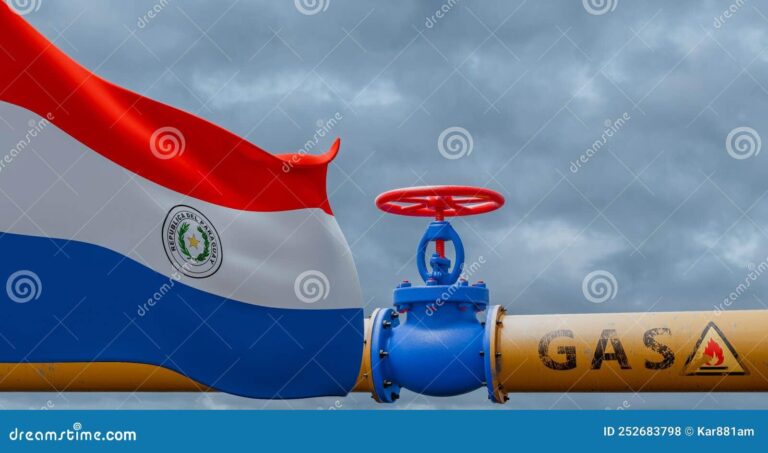Paraguayan and Argentine officials have convened to advance a pivotal gas pipeline project aimed at bolstering Brazil’s energy supply. The discussions, centered on a collaborative infrastructure initiative, underscore regional efforts to enhance energy integration within Mercosur member states. As energy demand in Brazil continues to rise, this proposed pipeline could play a critical role in securing a stable and diversified gas flow, fostering economic ties and strengthening cooperation among the three countries.
Paraguayan and Argentine Officials Convene to Advance Regional Gas Pipeline Integration
Key representatives from Paraguay and Argentina gathered this week in Asunción to discuss the advancement of a strategic gas pipeline project aimed at boosting energy connectivity across the region. The initiative focuses on linking the gas infrastructures of the two countries to facilitate reliable energy supply routes toward Brazil, one of South America’s largest consumers. The talks centered on technical alignments, environmental impact assessments, and cross-border regulatory frameworks necessary to streamline construction and operational phases.
Highlights of the meeting included:
- Harmonization of pipeline standards and safety protocols
- Negotiation on cost-sharing and financing strategies
- Timelines for initial feasibility studies and field surveys
- Joint commitments to sustainable practices and community engagement
| Key Milestone | Target Date | Responsible Party |
|---|---|---|
| Feasibility Study Completion | Q4 2024 | Joint Technical Committee |
| Environmental Approval | Q2 2025 | National Environmental Agencies |
| Construction Start | Q1 2026 | Consortium of Energy Firms |
Strategic Benefits and Economic Impacts of the Pipeline Project on Brazil’s Energy Supply
The implementation of the gas pipeline connecting Paraguay and Argentina to Brazil represents a pivotal shift in South America’s energy dynamics. By diversifying Brazil’s natural gas supply routes, the project strengthens regional energy security and reduces dependency on traditional suppliers. This infrastructure not only ensures a more stable and continuous gas flow throughout the year but also enhances Brazil’s capacity to meet growing domestic demand amid industrial expansion and urbanization. Analysts highlight that improved energy access could translate into greater energy affordability and reliability, key drivers for sustained economic growth in Brazil’s burgeoning sectors.
Beyond energy security, the economic ramifications of the pipeline are far-reaching. The project is expected to generate significant employment opportunities across construction, maintenance, and operations phases within Brazil and its neighboring countries. Moreover, fostering integrated energy cooperation encourages cross-border trade and investments, further stimulating regional economic development. Below is a summary of the primary strategic and economic benefits:
- Enhanced energy diversification reducing supply risks
- Job creation across multiple industries
- Strengthened regional integration promoting trade and cooperation
- Improved infrastructure resilience and energy distribution networks
| Benefit Category | Key Impact | Expected Outcome |
|---|---|---|
| Strategic | Energy Supply Security | Reduced import risks, stable supply |
| Economic | Local Employment | Thousands of temporary and permanent jobs |
| Regional Integration | Cross-border Cooperation | Strengthened diplomatic and trade ties |
Recommendations for Enhancing Cross-Border Collaboration and Infrastructure Investment
To foster stronger cooperation between Paraguay, Argentina, and Brazil, it is essential to establish a streamlined regulatory framework that harmonizes policies across borders. This includes synchronizing environmental standards, tariff structures, and safety protocols to ensure seamless project implementation. Additionally, enhancing bilateral communication channels through regular intergovernmental forums and joint working groups will allow timely resolution of challenges and promote transparency throughout the pipeline’s lifecycle.
Investment in shared infrastructure must prioritize not only technical upgrades but also social and environmental sustainability. Key recommendations include:
- Establishing joint funding mechanisms to attract international investors and distribute financial risks.
- Developing advanced cross-border monitoring systems for pipeline integrity and environmental impact.
- Promoting community engagement initiatives to ensure local stakeholders support and benefit from the project.
| Focus Area | Strategic Action | Expected Benefit |
|---|---|---|
| Regulatory Alignment | Unified environmental policies | Faster project approvals |
| Funding | Joint international investment fund | Risk mitigation & capital flow |
| Community | Inclusive outreach programs | Social license to operate |
In Retrospect
As Paraguay and Argentina advance discussions on the proposed gas pipeline project aimed at supplying Brazil, the collaboration underscores a significant step toward regional energy integration and economic cooperation within South America. Stakeholders will continue to monitor developments closely as the project moves from planning to potential implementation, with implications for energy security and cross-border partnerships in the Mercosur bloc.




